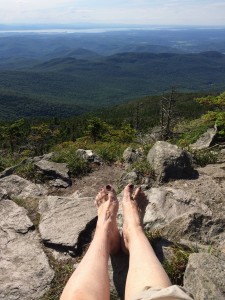
As promised, we’re looking at boredom today: the irony and the paradox.
I’ll begin by admitting I don’t remember ever feeling bored. Ever. Maybe I was and have long since forgotten; that’s a possibility. But in general, feeling bored is not something with which I can identify. So I am aware that I have no idea what boredom actually feels like that others face.
Someone defined it as having energy but no place to put it. Does that capture its essence? I do not know.
Years ago, one of my sons announced he was bored, the son about whom I’d often say, “He’s my peace; (the other one) is my spirit.” Turns out I may not have handled his boredom very well. And, except for that brief example, which didn’t go very far, this is a rather boring topic for me, so there’s the irony.
Here’s the paradox: The more I read and think about boredom, the less boring the topic becomes. Lesson learned.
Lucky for me (and you, I hope) “boredom” has recently become quite the research darling, with scientists in genetics, philosophy, and history studying it as well as the more expected psychologists, social psychologists, and sociologists.
Remember when our parents would say, “Don’t fidget.” (Yeah, mine didn’t either, but go with me here.). Turns out the first study of boredom called it “fidgeting.” This 1885 article focused on how restless an audience was during a particular scientific meeting.
As though a measure of the fascination level of this topic, boredom was not studied again for one hundred years, when the Boredom Proneness Scale (BPS) was developed (1986). I’ll not ask you to take the BPS or the more elaborate MSBS (the Multidimensional State Boredom Scale, developed in 2013). Turns out that was a rabbit hole out of which I’ve only recently emerged.
Sunlight. Good. Let’s continue.

The way boredom is being studied currently, it has a host of behavioral, medical, and social consequences. I could find no upside. Researchers have connected it to:
- gambling and other addictions;
- binge-eating
- distractibility while driving
- an increase in smoking, drinking, and drugging
- depression
- a limited attention span and need for self-reflection
- a search for meaning and frustration and
- feelings of apathy, fatigue, anxiety, ennui, and restlessness.
Who would want to admit to feeling bored?
Still, I’ve felt apathy, restlessness; I’ve been fatigued; I’ve searched for meaning (Might one argue this is exactly what I’m doing here?). Yet, I can’t recall ever acknowledging a feeling of boredom.
A sociology professor I had way-back-when claimed that the way to solve a problem always begins with how it’s defined. Could it be that we all share this physical sensation some dub “boredom” but we just define it differently?
I’m not bored; I’m looking for meaning in my life.
I’m not bored; I’m open to finding a new project.
I’m not bored; I’m sitting still.
“Don’t just do something,” the adage goes. “Sit there.”
Yes, I know it’s backwards. But to me this is a far more useful adage. Think about it; how often do we encourage our children to daydream? How often do we allow ourselves to just sit? Not to meditate; just to sit and do nothing.
So that’s what I came up with. Boredom is the doorway to new ideas, to creativity perhaps, to stepping off that treadmill we call life and giving ourselves a break.
For those of you who want more, I found this NY Times article on “Why trying new things is so hard” by Sendhil Mullainathan, (Professor of Computation and Behavioral Science at the University of Chicago Booth School of Business and formerly at Harvard and MIT.)
Here’s a quote from his article:
Experimentation is an act of humility, an acknowledgment that there is simply no way of knowing without trying something different.
Here’s to trying something new today. Even if it’s just sitting.

How about you? What’s your take on boredom?
Jerry Waxler
Hi Janet,
By chance I happen to be listening to the audible book Flow: Living at the Peak of Your Abilities Mihaly Csikszentmihalyi . Even page of it offers insights into ways to find engagement in everyday life.
I used to think that it was a whole book just on the kinds of flow-states that are available to marathon runners and concert pianists – but it turns out he goes deep into the ways that we can add some of those same qualities to every day life.
Congrats for keeping your blog going. It’s a long haul kind of endeavor.
Best wishes
Jerry
Author of Memoir Revolution
Jerry Waxler recently posted…Launching Memoirs Chronicle Main Tasks to Grow to Adulthood
Janet Givens
I too have been fascinated by the focus on flow of late, Jerry. I’m thinking boredom, as most folks use it, must be a polar opposite. It is a lovely state to be in, though, isn’t it? I find it when I’m in my woods, clearing a patch for firewood, or sometimes when I’m writing and the words literally flow. Thanks for reminding me.
Janet Givens recently posted…A new look at boredom
Marian Beaman
Your blog post topic startled me a little. I haven’t had time to feel bored lately, and I think you know why!
My grandma, usually mild in temperament, could not abide our telling her we felt bored. I think she thought it came from a lack of curiosity – or gumption.
Thanks for the link to the NYTimes article. (Diet Coke, what’s wrong with the guy!) I see it’s from 2017, so maybe he’s mended his ways – ha!
I wish I could go hiking with you and see the glorious foliage you posted on Facebook. Wow!
Marian Beaman recently posted…Quilts and Tractors and Churns, Oh My! Glenn Longenecker’s Farm Museum
Janet Givens
We wouldn’t have to walk far, Marian. Those trees are right outside my back door. I know, the diet coke, I too was aghast. But at least he admits it; that’s the first step. 🙂 Hope you soon get a chance to practice boredom, in all it’s underrated glory.
Janet Givens recently posted…A new look at boredom
Clive Pilcher
I must admit that I’ve always thought that boredom was a temporary state, when one has nothing that seems attractive to do at that moment. I’d never thought of linking it to scientific research, though. Maybe those researchers didn’t have anything else to occupy their time?
Clive Pilcher recently posted…World Mental Health Day 2019
Janet Givens
It’s amazing what folks get interested in, isn’t it Clive? I recall a social psychology text book on Romantic Love. It was actually fascinating. More interesting than what they’re learning about boredom, for sure. 🙂
Janet Givens recently posted…A new look at boredom
susan scott
Hi Janet – I had to smile 🙂 When my boys were small and said Ma, I’m bored, I said, oooh how lovely. It’s lovely to be bored. Time to go outside and lie on your back and look at the sky and clouds, look for fairies at the bottom of the garden, watch the grass growing and so on …
Yours is a lovely post, thank you … the data is interesting …
I’m all for doing nothing – if only!
Janet Givens
How lucky they were Susan. What grand memories those moments must have created. Thanks for adding your voice.
Janet Givens recently posted…A new look at boredom
Tim Fearnside
Janet – why doesn’t it surprise me that you’ve never experienced boredom? I wish I could say the same. I spent much of my childhood feeling extremely bored in school. Of course, there were those rare teachers who, it seemed, could make virtually anything interesting (in addition to the many more pedestrian ones who could seemingly take the world’s most interesting subject and turn into pure, unadulterated tedium). I can’t help but wonder if boredom, at least in an academic setting, has much to do with how our brains are wired to receive information, our individual learning/communication styles, and our respective abilities to focus and concentrate. A.D.D., for example, reflects a deficiency of certain neurotransmitters (dopamine, chief among them) essential for concentration. Kids with A.D.D. can sometimes focus (or even “hyper focus”), but it typically requires a subject, topic, or activity that is interesting and engaging enough to them (i.e., stimulating) that they can elevate their dopamine production (sometimes dramatically, as if a type of adrenaline rush) to focus on the task at hand. It’s a bit like a sticky accelerator in a car. Most of the time, they press on the accelerator and nothing happens. Then, occasionally, they stomp on it, the accelerator becomes unfrozen, and they’re suddenly going 100 m.p.h. Their problem is finding a comfortable cruising speed somewhere in-between.
Janet Givens
Hi Tim. You ‘ve added something very important here. Boredom does indeed seem to be about focus and control. To be limited in what we can focus on and not have the ability to change it seems the very definition of the classic school room. Those classrooms were set up to learn in one way and if that way didn’t work for you, you were out of luck. For all the troubles with our educational system currently, at least they’ve come to appreciate the many ways we have of learning. I hope you find the time to stare at the clouds above. You surely have some spectacular ones out there in Boise.
Janet Givens recently posted…A new look at boredom
Ally Bean
Boredom used to = “fidgeting”? That’s fascinating. As a child I was often told not to fidget, being that I was a wiggly little girl.
My take on boredom is that many people confuse being alone with being bored [restless tedium]. I know the difference so if I realize I’m bored, I accept it and go find something to do. That’s all boredom means to me, it’s a catalyst to have some gumption and get on with my life.
Ally Bean recently posted…Talking To Myself: Evidence Of Impending Decrepitude Or Productivity Hack?
Janet Givens
Oh yes, I agree Ally, there is much confusion around boredom. And such power in labeling. When I’d hear someone say, “I’m bored” it always came across as blaming the environment rather than turning inward.
What I’ve come away with from looking at boredom, is that it’s another social construct. There is no objective, measurable “boredom.” It’s just what a lot of people call that state where they are between projects (more or less). And, unable to sit still, they run to fill up the space. Hmmm, maybe I need to add an epilogue. 🙂 Thanks for joining in.
Janet Givens recently posted…A new look at boredom
Bette Stevens
Fascinating… Enjoyed and sharing. My take? In a world demanding multi-tasking (I’m not buying it), a little boredom every now and then is good for the body, mind and soul.
Bette Stevens recently posted…Come Celebrate Maine! Book Signing & Author Chat
Janet Givens
Hi Bette, I’m so glad you mentioned multi-tasking. I was thinking today that multitasking (for me it’s reading on my phone while I’m watching TV) can often be a way of fending off an uncomfortable sense of ennui. Yes indeed, Up with Boredom. It has value.
Janet Givens recently posted…A new look at boredom
cheryloreglia
This was a fascinating read, when my children were young I longed for boredom! Today the house is fairly empty and time has taken on a new nuance, I enjoy lingering with my uninterrupted thoughts, and writing from a tranquil space. Love the research here, I teach high school, and I’ve noticed an inability to sit quietly and just think. Lots of fidgeting in the classroom unless my topic is riveting! Thanks for the great post.
Janet Givens
Cheryl, great to have you here. Welcome. I can so relate. When I was in the Peace Corps, the first year, there was so much new, so much to do, I used to yearn for the chance to “be in a rut” — I was referring to being bored without realizing it. We need those times, don’t we. It’s when we recharge. Or not.
Janet Givens recently posted…A new look at boredom
Frank V. Moore
Could it be that boredom is a manifestation of the avoidance of introspection?
Janet Givens
It could indeed, Frank. Thanks.